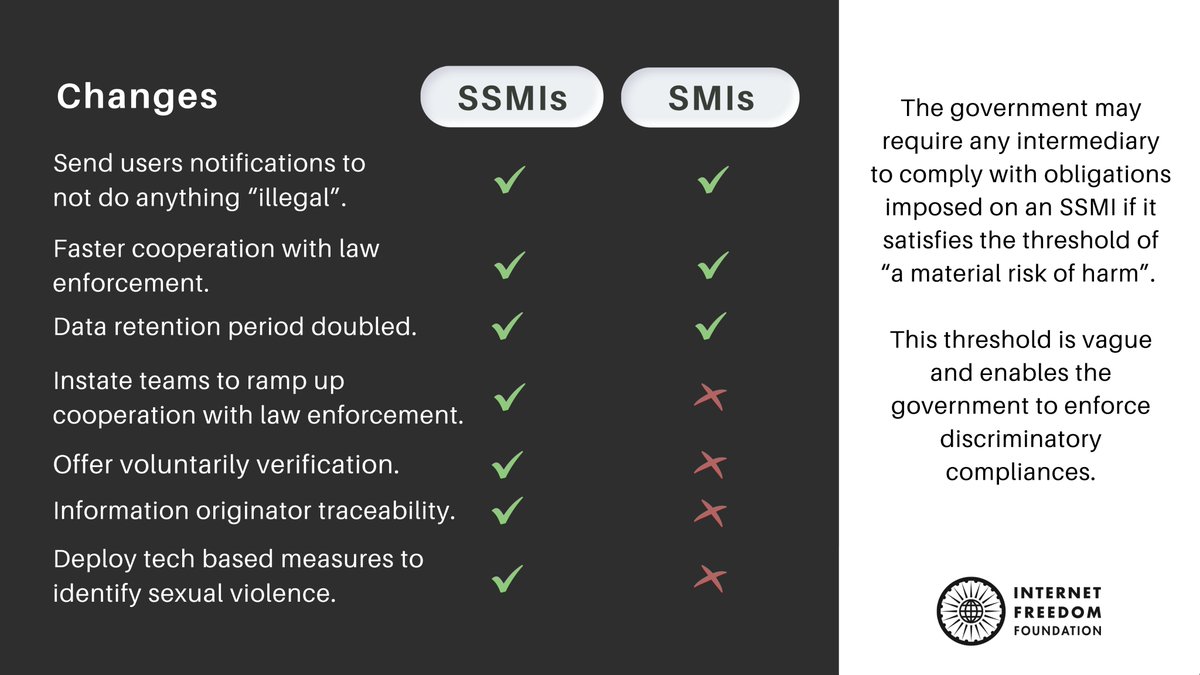
Thread: One of the ways we demand transparency and accountability from government authorities is through RTIs. Every month, we update you on our filings. Here are our RTIs for Feb '21: From vaccine data to porn search tracking to OTT regulations!
1/n
internetfreedom.in/digital-transp…
1/n
internetfreedom.in/digital-transp…

On matters of data protection and privacy, we filed RTIs with MeitY, PM's office, BSNL, PCO Lucknow, ICMR, and more to seek info on CoWin, blockchain, vehicular data sharing, data breaches, etc. We reached out to 9 public authorities for info on facial recognition projects.
2/n
2/n
On free speech and censorship, we filed 13 RTIs: to MHA on internet shutdowns, MeitY and MI&B on twitter account takedowns, OTT regulations, and Tandav, MeitY, BSNL, and MTNL on website blocking.
Here's an overview - detailed information is on the blog linked above.
3/n
Here's an overview - detailed information is on the blog linked above.
3/n

Our RTIs inform our work in a big way, and help us provide you with answers to digital rights issues that are otherwise shrouded in obscurity. Become a member with us today, and we'll use your donations to continue this work.
Until next month!
internetfreedom.in/donate/
Until next month!
internetfreedom.in/donate/
• • •
Missing some Tweet in this thread? You can try to
force a refresh



